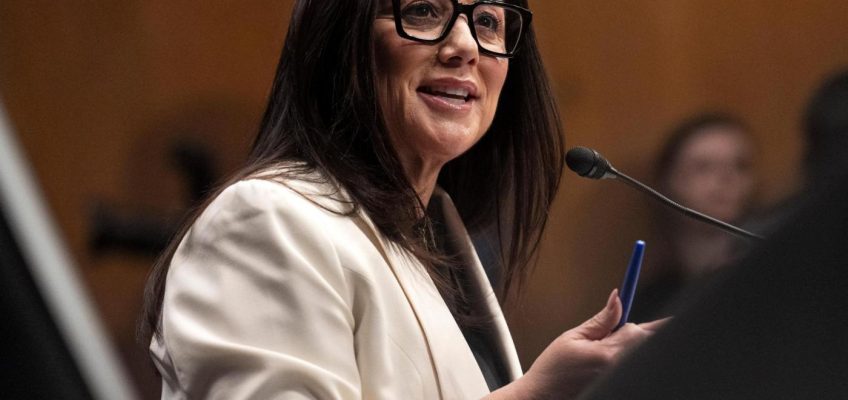By DAVID KLEPPER, Associated Press
WASHINGTON (AP) — Democratic lawmakers are demanding answers from Elon Musk about whether staffers at his Department of Government Efficiency have shared national security secrets over insecure communication channels.
Sen. Elizabeth Warren of Massachusetts and Rep. Gerry Connolly of Virginia were joined by several other Democrats on a letter Thursday that asserts that reckless actions by Musk and Republican President Donald Trump’s cost-cutting initiative present a threat to national security by exposing secrets about America’s defense and intelligence agencies.
Elon Musk speaks at the Conservative Political Action Conference, CPAC, at the Gaylord National Resort & Convention Center, Thursday, Feb. 20, 2025, in Oxon Hill, Md. (AP Photo/Jose Luis Magana)
Such information would present huge advantages to U.S. adversaries by giving them critical information about Washington’s defense priorities and the resources assigned to various missions and objectives, the lawmakers said.
Without going through the normal security procedures, staffers hired by Musk have gained access to a variety of sensitive government databases that contain private information about many Americans and their businesses, along with employment and operational information used by the government.
In many cases that includes classified information, such as the precise number of employees working for various intelligence agencies.
According to the letter, DOGE staffers in recent weeks have used unauthorized servers and unknown artificial intelligence programs to analyze and store the data, and shared the information over unsecure channels, raising the risk that a foreign nation, criminal group or inside threat could gain access or misuse the material.
Related Articles
Senate committee recommends Lori Chavez-DeRemer’s confirmation as Trump’s labor secretary
Trump plans tariffs on Mexico and Canada for March 4, while doubling existing 10% tariffs on China
USAID workers will be given 15 minutes to clear their workspaces as the agency gets dismantled
As Trump’s deadline to eliminate DEI nears, few schools openly rush to make changes
In lawsuit filing, Pentagon says transgender troops can’t serve unless they meet a warfighting need
The lawmakers also noted that despite assurances the DOGE website will not reveal information from intelligence agencies, material from the National Reconnaissance Office was easily found, the lawmakers said.
They expressed concerns that DOGE may be cutting spending and personnel without understanding the national security implications until it is too late. They pointed to a recent incident in which the government tried to bring back workers it had fired who worked on nuclear weapon programs.
“DOGE employees do not appear to fully understand much of the information to which they have been given unfettered access and given the cavalier and incompetent ways that they have handled this data, these individuals represent a clear threat to national security and the nation’s economy,” the lawmakers wrote.
In their letter, the Democrats demanded information about DOGE staffing and security protocols and how the data has been used, and potentially misused, since DOGE began operations earlier this year.
Musk and Trump have defended DOGE’s work, saying it’s led to billions in savings. DOGE and the White House did not immediately respond Thursday to questions seeking comment about the lawmakers’ letter.




